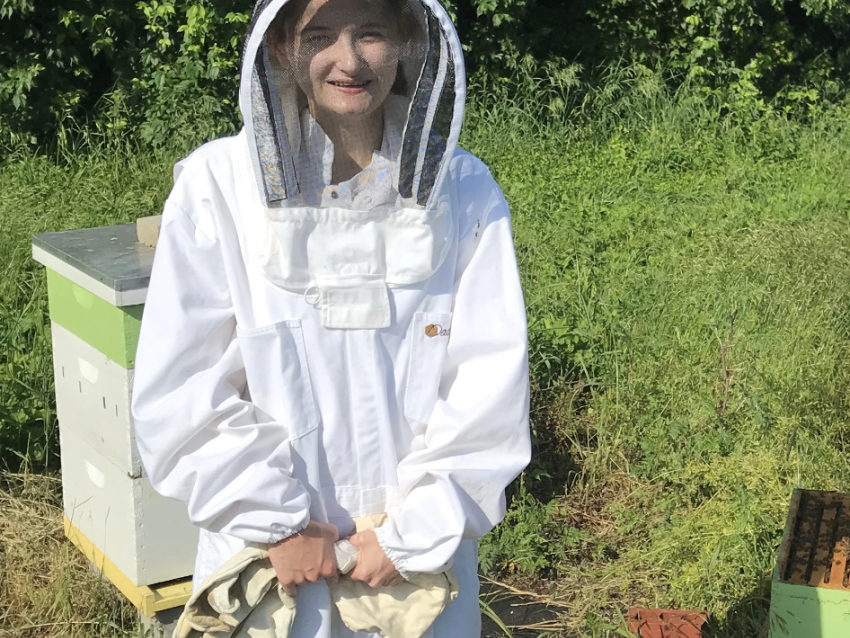
Summer Research Fellow Spotlight Taylor Napier
“Honeybees are social insects that live and work together in a colony. Colonies have a single queen who is the mother of all other members in the hive. Almost all of the other honeybees in a hive are female worker bees. For a colony to function efficiently, individual worker bees must divide the workload for various tasks, which include foraging for pollen, tending to the queen, nursing the larvae, and making wax. Workers temporarily specialize on a certain behavioral task (e.g., nursing, foraging), only switching tasks once they receive enough social information to motivate them to do so. Pheromones, which are chemical substances that evoke a specific behavioral response, are a major type of cue used by the bee. Pheromone exposure can cause task specialization (called “primer” pheromones) or they can cause the bee to immediately perform a certain behavior (called “releaser” pheromones)." Taylor's research project "will determine if nurse and soldier bees differ in their ability to perceive alarm and begging pheromones. I will also determine if these groups differ in how their brains process these cues. I hypothesize that specialized honeybees will show a greater ability to perceive pheromones relevant to their tasks.”
Q: How did you first get interested in undergraduate research at UK?
A: "My mentor sent out a letter looking for undergraduates to help with data entry, which eventually lead to me taking a position in the laboratory."
Q: How long have you been engaged in undergraduate research?
A: "Two years."
Q: Describe what a typical day of remote summer research activity looks like for you. How does this differ from your pre-COVID research activity?
A: "This summer, I have been active in helping to perform field work with other members of my lab. This has included preparations for my summer project, such as honey bee hive checks, as well as work for other projects in the lab, such as wild bee observations and excavations. My work this summer has been very different than my work in previous semesters, in which I worked exclusively in the laboratory."
Q: What has been the most exciting aspect of your research so far?
A: "I have enjoyed participating in field work, which I have not had the opportunity to do before this summer. It has been very nice to get outside and enjoy the weather."
Q: What advice would you give to other UK students thinking about doing research?
A: "I would advise them to seek out research that is compelling to them and not to be afraid to explore different topics. When I first came to UK, I would not have expected to assist with research in entomology, but now that I am here, I am very grateful to have taken this path."
The UK Office of Undergraduate Research's Summer Research & Creativity Fellowship program provides undergraduates with the opportunity to study in a wide variety of disciplines while doing intensive and self-directed research under the supervision of a faculty mentor.